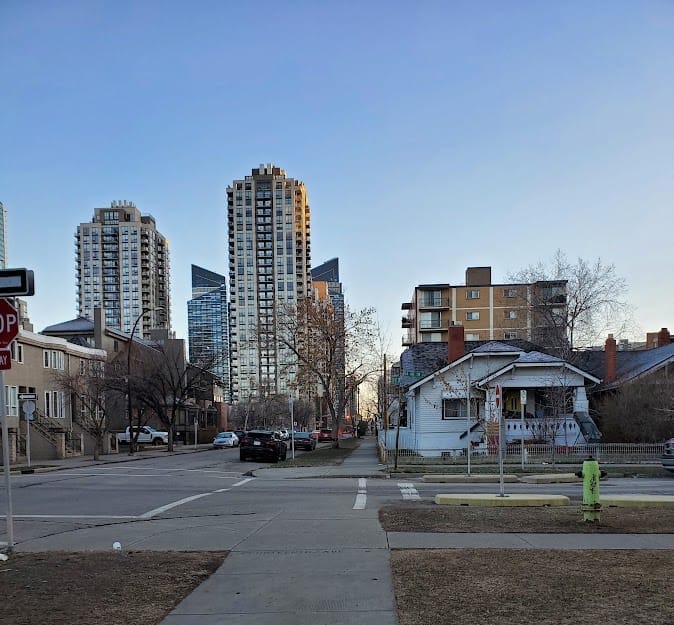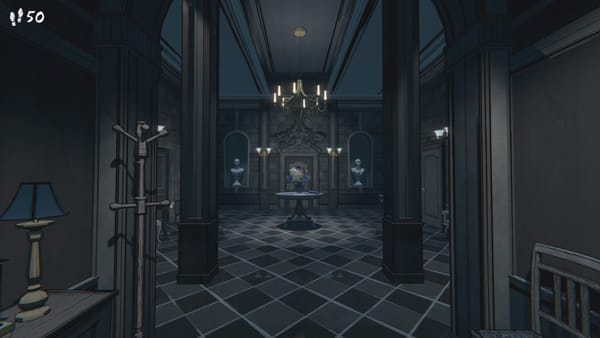Why I Support Citywide R-CG Zoning

Calgary is in the midst of a housing crisis. This is a shock to no one who pays rent or gives real estate listings any attention. For many of us, how we pay for our homes (if we are so blessed) has dominated our financial anxieties, along with a growing list of skyrocketing monthly bills, ballooning grocery store check-out prices, and unexpected expenses. The ultimate victim of this cost-of-living crisis is the most vulnerable people in our neighbourhoods. These are folks who have always struggled, and will continue to face, an even steeper uphill battle for some semblance of economic stability, even compared to other major Canadian cities. Back to housing specifically, a recent influx in interprovincial migration into Calgary has certainly brought housing supply issues, but there exists a deeper issue here: our city’s exclusionary zoning strategy.
Throughout much of the 20th and into the 21st century, Calgary’s zoning regulations have ensured that a vast majority of suburban expansion has been predominantly composed of single-detached homes. In contrast, due to citywide zoning rules, these neighbourhoods often forbid alternative, but still modest, housing options (ex. duplexes, row houses, and secondary suites). Suburban expansion came with suburban lifestyles. From Tuscany to McKenzie Towne, the long morning car commute to work along Crowchild or Deerfoot, respectively, was emblematic of a life that many relished, even if they were driven mad when they waited in snarled traffic. After all, who can blame Calgarians for dreaming of spacious living rooms, lower crime rates, and a backyard barbeque with their neighbours? And so, this land-use policy changed the city. The intimate tie between single-detached homes and suburban culture was made. They still reinforce each other, but today, times are changing and a crisis has arrived.
With the city's population growth and housing stock dwindling, a reevaluation was in order. Last year, the Housing Strategy Task Force fulfilled that very duty. Their recommendations (approved by City Council by a vote of 12 to 3) included a heap of bold changes to address the housing crisis. These range from removing parking minimums, to using city-owned land for transit-oriented development, to the adoption of citywide R-CG zoning. Citywide R-CG zoning would effectively change the base zoning rules of Calgary to allow for the construction of duplexes, row houses, and secondary suites (along with other low-rise housing options) in neighbourhoods previously only composed of single-detached homes. It is here that zoning reform is facing an uphill political fight as the April 22nd public hearing on the matter nears closer. Many Canadians are already on board with these types of reforms, but opponents of R-CG zoning, bolstered by classist NIMBY sentiment, blatant misinformation, and 15-minute city paranoid delusions, are trying to shut down progress on the housing issue. Whilst some may have earnest concerns on the matter, this is common sense zoning reform that is practical and gradual in its very nature. It will address the fiscal costs that low-density residential developments put on the city’s budget, the economic toll of the housing crisis on Calgarians, and most importantly, the ecological devastation that limitless suburban expansion has on our urban peripherals (and beyond).
Low-density residential developments incentivize outward expansion to the edges of the city limits. As neighbourhoods emerge from Glacier Ridge to Silverado, the municipal government has to expand urban infrastructure (like bus routes and roadways) and city services (fire services and recreation centres) into increasingly distant neighbourhoods on the taxpayers’ dollar. In contrast, denser housing options in established neighbourhoods amplify already existing infrastructure and services, saving money in the process. A recent city report out of Edmonton said that adopting this strategy of densifying existing neighbourhoods could bring property taxes down by 8%. While savings on property taxes are certainly appealing, more desirable still is that densifying our neighbourhoods will increase our city’s housing supply and slow the currently skyrocketing prices for rentals and real estate listings alike. While it might take some time, places like Auckland have already demonstrated that upzoning has its merits in meeting the challenges of the housing crisis. If we want to pursue a city that provides the right to housing for all, which I believe to be a worthwhile goal, upzoning reform is worth serious consideration.
Most important to myself, this zoning reform represents a tangible step towards taking action on the ecological crisis (and the associated climate emergency). The environmental impact of suburban sprawl is well-documented. These low-density suburban housing developments are built upon ecologically-devastating foundations and they bring a certain desolation to wildlands on the cities’ peripherals, whether it is paving over native grasslands with car-centric infrastructure or building McMansions on vital wetland habitats. These lands are already faced with a siege by industrial and agricultural interests that seek to exploit it for profit. Suburban expansion compounds that assault. But pivoting towards greater urban density offers a remedy to reduce environmental harm and rebuild connections with the nearby land. Furthermore, denser neighbourhoods offer more efficient connections between residencies, workplaces, local amenities, and essential services. In doing so, there is an opportunity to curb the excessive GHG emissions associated with sparse and car-centric suburban life. As an additional note, for more fantastic reporting of the costs associated with sprawl, specifically around the Greater Toronto Area, I’d recommend Environmental Defense’s The High Costs of Sprawl: Why Building More Sustainable Communities Will Save Us Time and Money.
Whether it comes down to saving money or protecting muskrats, adopting Citywide R-CG Zoning is the right decision for our city, regardless of the current spat between the federal and provincial government. With the public hearings nearing, Calgarians have an opportunity to pivot our city’s new future in a different direction. It is our duty to meet this moment with bravery and embrace a bold reform towards a better city for all.
For information on the proposed zoning reform from More Neighbours Calgary:
https://www.moreneighbourscalgary.ca/rcg
To request to speak at the public hearing: https://forms.calgary.ca/content/forms/af/public/public/public-submission-to-city-clerks.html

